- Clinical Technology
- Adult Immunization
- Hepatology
- Pediatric Immunization
- Screening
- Psychiatry
- Allergy
- Women's Health
- Cardiology
- Pediatrics
- Dermatology
- Endocrinology
- Pain Management
- Gastroenterology
- Infectious Disease
- Obesity Medicine
- Rheumatology
- Nephrology
- Neurology
- Pulmonology
Facial Skin Problems-A Photo Essay
Images: Allergic contact dermatitis, seborrheic keratosis, dermatophytosis, oro-labial herpes simplex, hereditary trichoepithelioma
A 70-year-old woman presented with acute onset of an intensely pruritic eruption on the face. She had a history of eczema. A predominance of infraorbital erythema and swelling suggested that her condition was related to a material being placed in the eyes and then dripping down, and she had been instilling drops to relieve symptomatic dry eye. Allergic to benzalkonium chloride, the ocular solution’s preservative, she had allergic contact dermatitis.
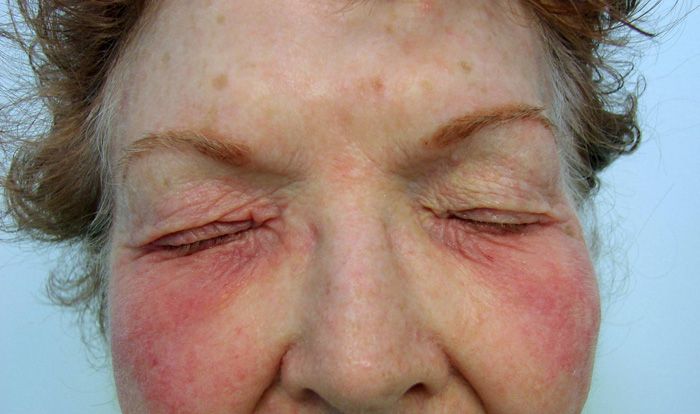
Image courtesy of Ted Rosen, MD.
Click here for the next image
A 69-year-old man complained about an asymptomatic “spot” on his nose. His history included innumerable facial actinic keratoses. Examination disclosed a minimally elevated 3.7-mm patch on the anterior nose. The area’s texture, different from the rest of the nose, was characterized by a small eccentric focus of crescent-shaped pigmentation. This neoplasm was only a seborrheic keratosis but might have been a hypertrophic actinic keratosis, melanoma, or superficial basal cell or squamous cell carcinoma.
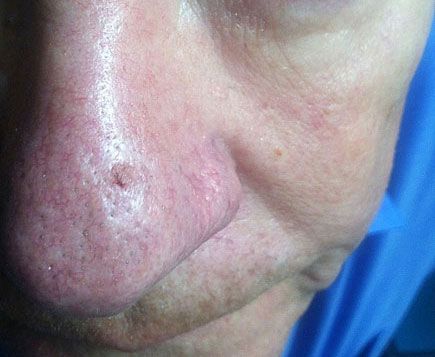
Image courtesy of Ted Rosen, MD.
Click here for the next image
A 7-year-old boy presented with a solitary, nearly circular, very pruritic inflammatory facial lesion. Annular lesions suggest dermatophytosis. The intensity of the inflammatory response suggests a nonhuman source for the fungus (the presence of which was verified by potassium hydroxide). This infection is usually associated with contact with a new kitten or puppy.
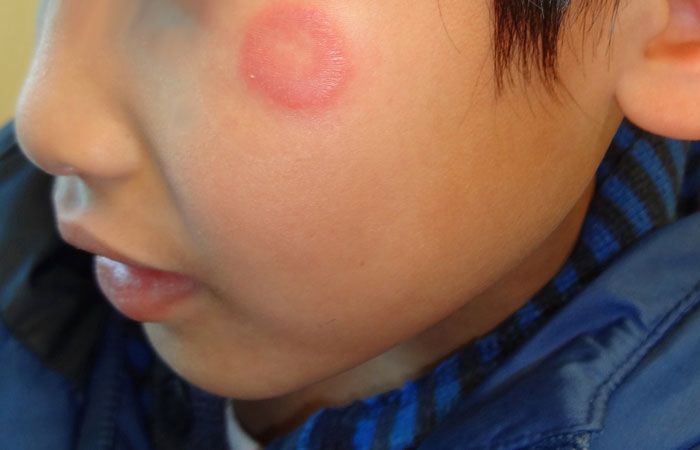
Image courtesy of Ted Rosen, MD.
Click here for the next image
A 77-year-old man sought medical attention because of a painful group of “sores” near his mouth. He was just recovering from community-acquired pneumonia. This clustered grouping of small, shallow erosions surmounting a slightly indurated plaque is characteristic for oro-labial herpes simplex (“cold sores”). The attack was precipitated by the temporarily impaired immune response associated with his pulmonary infection.
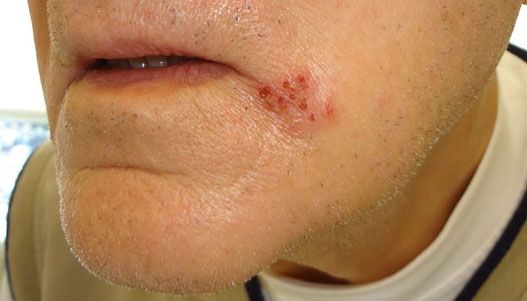
Image courtesy of Ted Rosen, MD.
Click here for the next image
A 48-year-old man presented for treatment of herpes zoster. As an incidental finding, numerous flesh-colored, asymptomatic papules were noted on the central face. The clinical picture and history is consistent with hereditary trichoepithelioma, a benign dermal skin tumor derived from immature hair follicle cells. These tumors have no malignant potential and no serious systemic associations.
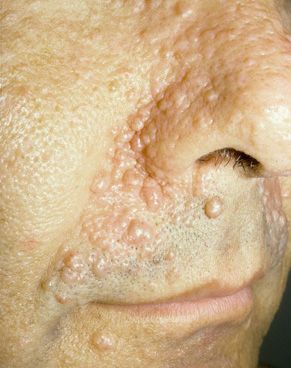
Image courtesy of Ted Rosen, MD.
Click here to return to the first image.
